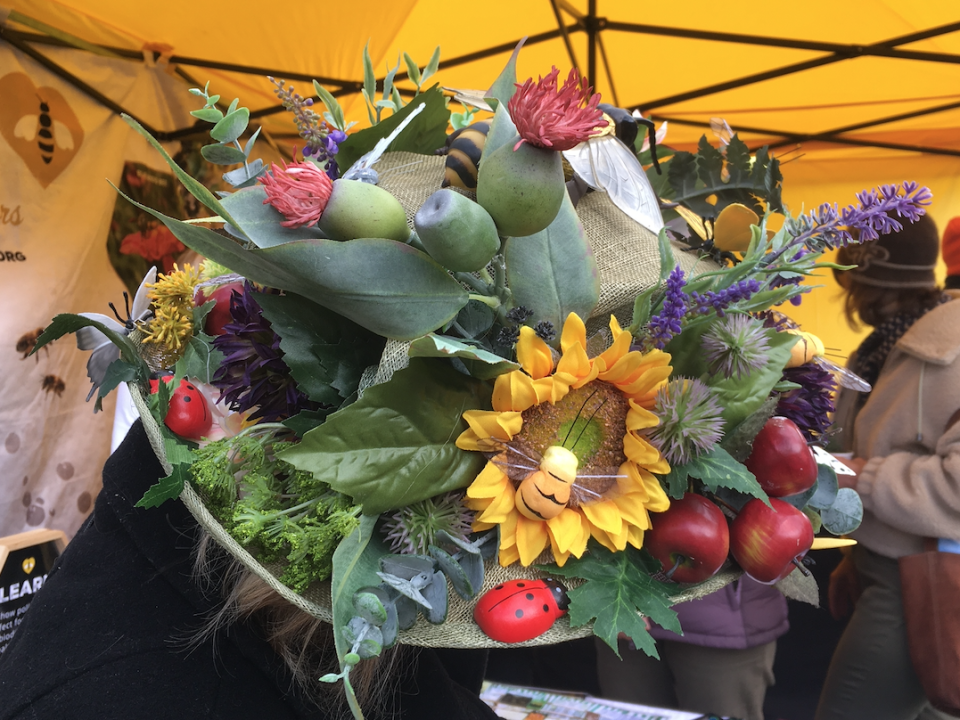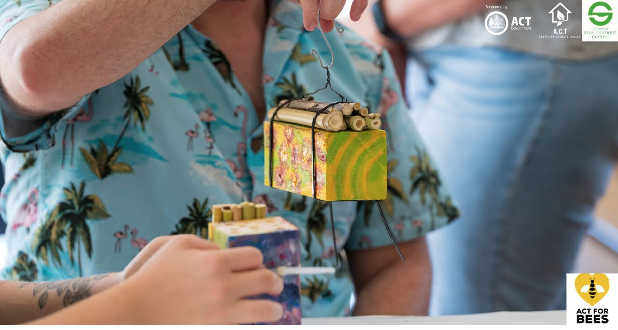ACT For Bees Success With ACT Government
July 29, 2019Maximising Biodiversity By Supporting Pollinators Event
January 29, 2020
The ‘Hall Honeys’ are collaborating with ACT for Bees in developing a bee-friendly charter outlining how to make Hall village in the ACT become what they believe is Australia’s first bee-friendly village.
Hotels for every Hall home as ‘Honey’s’ do their bit for bees.
Hall Men’s Shed has been very busy making a ‘Bee Hotel’ for every household in Hall which will also receive a selection of native plants providing good forage for bees and pollinators, a bee-friendly gardening guide and a bee-friendly garden sign. Public areas of Hall will also be planted out with a wide range of native plants.We have a good list of plants for our local bees and pollinators which is worth checking out if you’ve space in your garden! The ACT Government Plant Species for Urban Landscapes also has a comprehensive list of plants that has recently been edited with information on flowering times, nectar and pollen resources, and the pollinators, birds and small mammals the plants support.
Australian Pollinator Week (Sunday 10-17th November)
The citizen science Wild Pollinator count is also on that week which you can support by looking for 10 minutes at one flower in your garden, nearby bush or reserve or school and record the insects that visit it. Take photos which help with identification and iNaturalist and Canberra Nature Map are good resources for ID too. This project which has been running since 2014.
I recently travelled to the Euroa Arboretum, a restored native vegetation site for a ‘Bee and Pollinator’ event where Karen Retra from Wild Pollinator count took us insect spotting in the meadows planted with local wildflowers. We had a great time getting muddy making bee bricks for Blue Banded Bees and Seed bombs with seeds collected from the meadows. What a wonderful day!
Cormac and I met with Michael Fox, Pollinator Link who has been working around Brisbane to bring back bees, butterflies and birds through planting local native pollinator gardens and having a good range of water sources for wildlife. Great resources on the Pollinator Link website.
There will be an informal walk at the Australian National Botanic Gardens with Peter Abbott on Thursday 14th November. We will meet at the Visitors Centre at 10.30 am and learn more about the native bees in the Botanic Gardens and also take part in the Wild Pollinator Count. Please download and print the Tally sheet and bring it along.
Excellent Guide to Bee Hotels

Want to build a bee hotel? Please make sure it is deep enough as the bees lay female eggs first and if they run out of room, apparently the male eggs aren’t laid. This is a good guide from http://mrccc.org.au/wp-
Kit Prendergast ‘Bees in the Burbs’ Facebook has a research project on which bee hotels work well. She’s also written Bee Hotels for Native Bees which is well worth buying.
For farmers and Landcare, Port Phillip and Westernport Catchment Authority has information on a 3 year trial of how farmers can improve their farm biodiversity by using native insects. By revegetating with local native plants that provide excellent habitat for beneficial insects, the trial showed how a simple low cost input can have long term financial advantages with reduced labour and pesticide inputs. Please share this resource.
Have a great month out and about in nature looking out for our local pollinators and plants!



